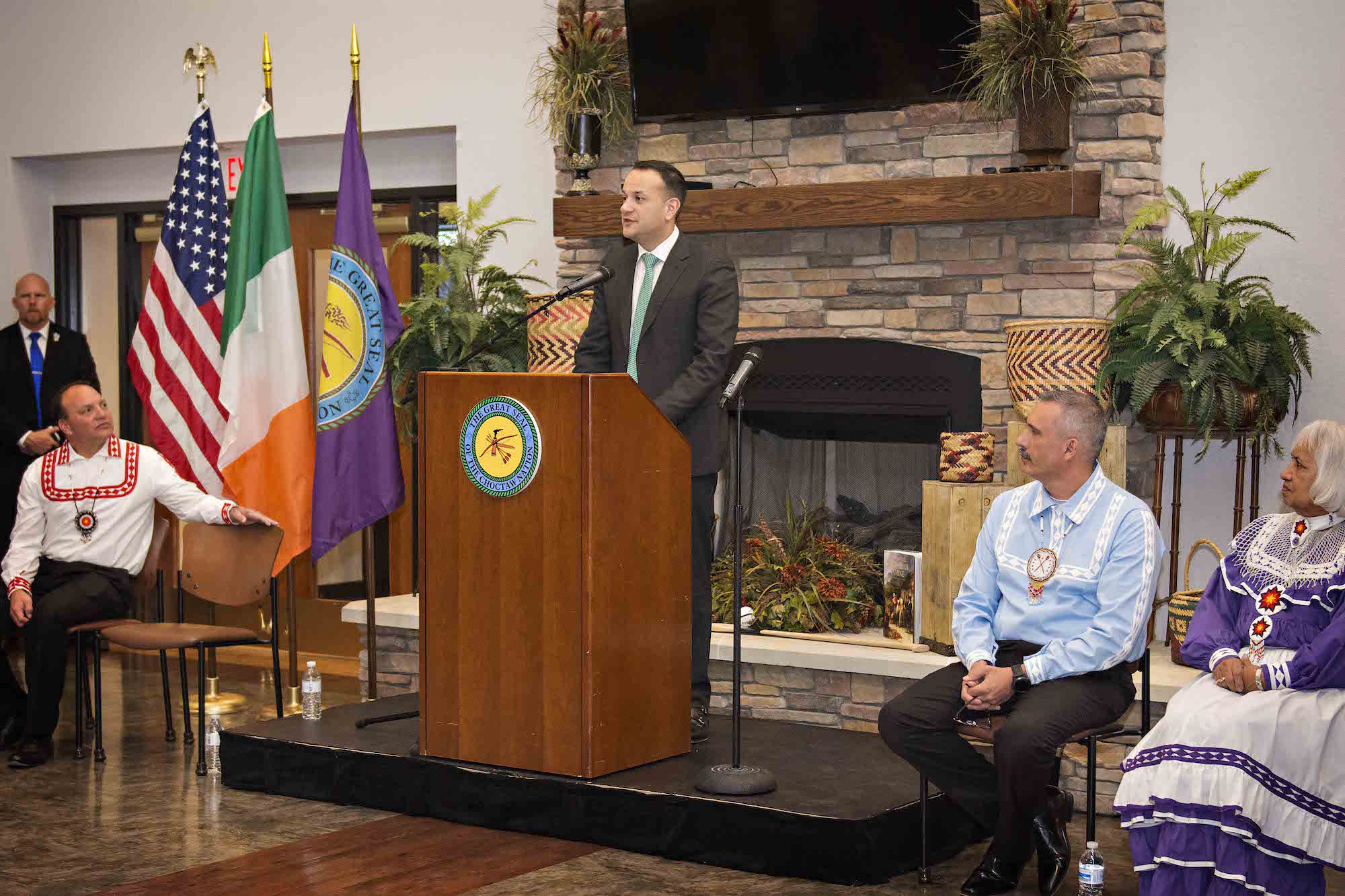
- Details
- By Native News Online Staff
DURANT, Okla. — Two years ago, on March 12, 2018, the prime minister of Ireland visited the Choctaw Nation in Durant, Okla. He was in the United States during a week-long tour to celebrate St. Patrick’s Day festivities.
Prime Minister of Ireland Leo Varadkar, who left that position in June 2020, wanted to visit the Choctaw Nation to thank the tribe for the generous gift their ancestors gave to the Irish back in 1847 during the Great Famine of 1845-1852 in Ireland.
After experiencing their own difficult times during the Trail of Tears 16 years prior, when the Choctaws heard about the suffering of the Irish were experiencing, they collected $170—the equivalent of $4,400 in today’s dollars—and through a group of Quakers sent it across the Atlantic Ocean to help feed the starving people in Ireland.
“The story of our two peoples — the Irish people and the Choctaw people — symbolizes the spirit of St. Patrick, our patron saint, perhaps better than anything else,” Varadkar told a gathering of tribal elders and dignitaries.
He later surprised the crowd with an announcement that Ireland created a scholarship so that Choctaw students could study in his country.
“Your story is our story. We didn’t have any income. This was money pulled from our pockets. We had gone through the biggest tragedy that we could endure,” he said, referencing the Trail of Tears. “The bond between our nations has strengthened over the years. We are blessed to have the opportunity to share our cultures and meet the generous people who have continued to honor a gift from the heart.”
The 2018 visit was not the first time a leader of Ireland acknowledged the generosity of the Choctaws in 1847. In 1995, Irish President Mary Robinson visited the Choctaw Nation to thank the Choctaws for the funds sent to Ireland. She noted that the only link was “a common humanity, a common sense of another people suffering as the Choctaw Nation had suffered when being removed from their tribal land.”
More Stories Like This
Native News Weekly (August 25, 2024): D.C. BriefsUS Presidents in Their Own Words Concerning American Indians
Wounded Knee Massacre Site Protection Bill Passes Congress
Two Murdered on Colville Indian Reservation
NDAA passes House; Lumbee Fairness Act Advances
Help us defend tribal sovereignty.
At Native News Online, our mission is rooted in telling the stories that strengthen sovereignty and uplift Indigenous voices — not just at year’s end, but every single day.
Because of your generosity last year, we were able to keep our reporters on the ground in tribal communities, at national gatherings and in the halls of Congress — covering the issues that matter most to Indian Country: sovereignty, culture, education, health and economic opportunity.
That support sustained us through a tough year in 2025. Now, as we look to the year ahead, we need your help right now to ensure warrior journalism remains strong — reporting that defends tribal sovereignty, amplifies Native truth, and holds power accountable.
 The stakes couldn't be higher. Your support keeps Native voices heard, Native stories told and Native sovereignty defended.
The stakes couldn't be higher. Your support keeps Native voices heard, Native stories told and Native sovereignty defended.
Stand with Warrior Journalism today.
Levi Rickert (Potawatomi), Editor & Publisher

